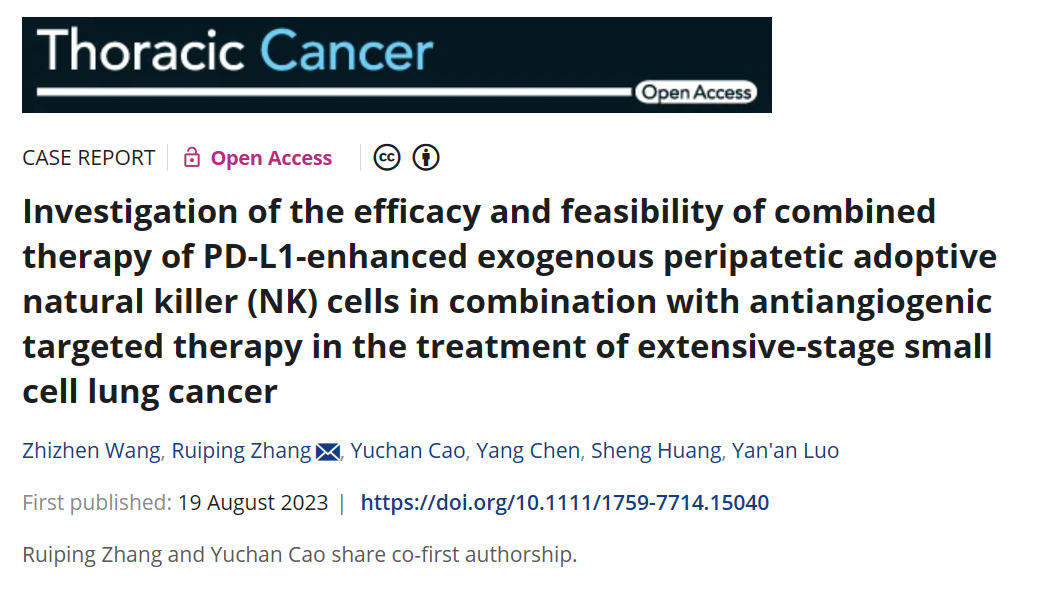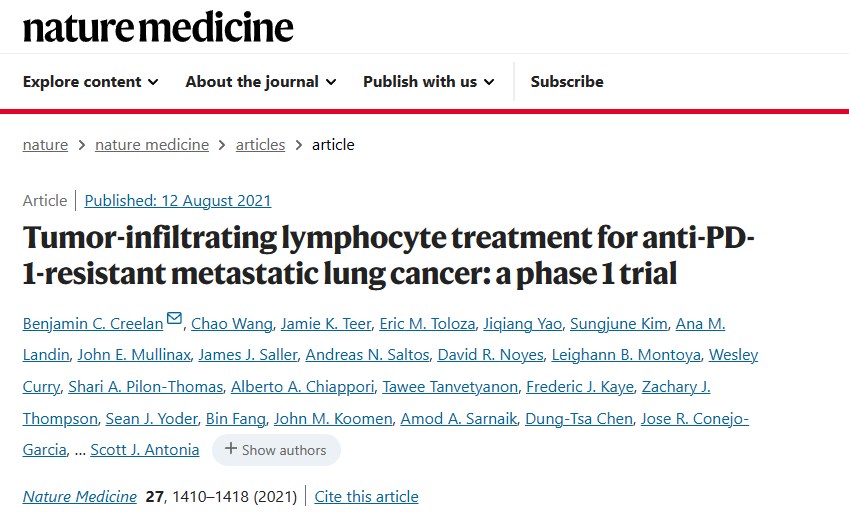
Source: Stem Cells and Genetic Sciences
Advanced cancer, especially in the case of multiple metastases, has always been a great challenge for medicine. In this regard, especially for patients with advanced lung cancer, the effectiveness of traditional treatments is limited. However, with the advancement of medical technology, combined immune cell therapy has become a new choice for the treatment of solid tumors such as lung cancer. Studies have shown that autologous cell immunotherapy in patients with postoperative non-small cell lung cancer (NSCLC) has brought significant results.
In one study, patients were treated with either cytokine induced killer (CIK) cells or natural killer (NK) cells, with impressive results. Overall survival rates at 1 -, 3 -, and 5 years were 96.4%, 88.1%, and 67.8%, respectively, in patients treated with immune cell therapy versus 91.2%, 65.9%, and 52.2% in the control group. This effect fully demonstrates that immune cell therapy can improve the survival rate of patients with advanced lung cancer.
Successful case of NK therapy in extensive stage small cell lung cancer

A patient with extensive small-cell lung cancer experienced significant shrinkage and regression of the extensively metastatic lesion after treatment with NK cells. With regular scans, the researchers saw significant improvements in patients' symptoms, offering new hope to patients with advanced lung cancer.

In another study, published in nature medicine, tumor-infiltrating lymphocyte (TIL) therapy also showed potential therapeutic promise. Some patients with non-small cell lung cancer who did not respond to PD-1 inhibitors achieved lasting remission through TIL therapy, with two patients even seeing their tumors disappear completely and remission lasting more than a year and a half. Although there are some challenges with TIL therapy, such as generating enough TIL cells remains a major challenge, its potential therapeutic benefits are still encouraging.
In summary: although treatment options for advanced cancer are limited, it does not mean that patients are helpless. As a new treatment method, combined cell therapy has brought a new choice for advanced lung cancer patients. In the continuous scientific research and practice, we have seen continuous breakthroughs in this field and the improvement of therapeutic effects. Cancer patients should seek medical treatment actively after diagnosis, explore a variety of treatment means, improve the treatment effect, prolong the survival period, and improve the quality of life.